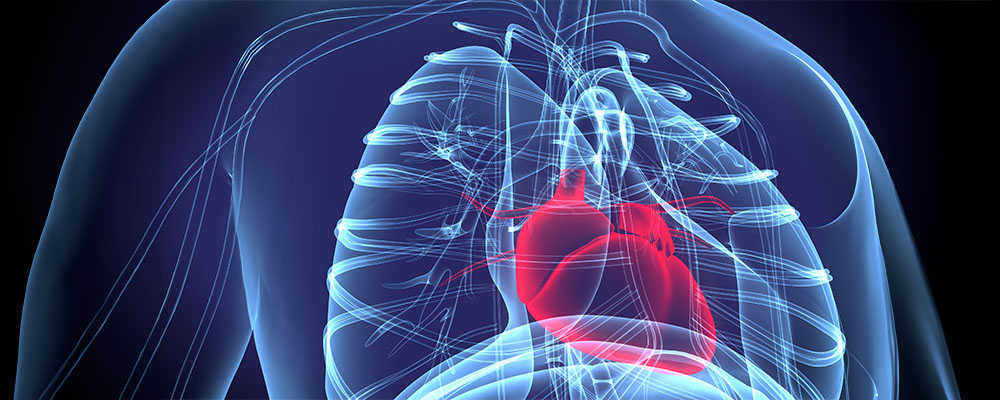Updated on February 21, 2024
The healthy functioning of the lungs and the heart syncing in just the right rhythm are the two essential components of life. Chronic obstructive pulmonary disease is one of the chronic conditions highly prevalent in the United States and it is among the conditions that can lead to heart failure. Continue reading as we explore the complex interplay between COPD and congestive heart failure, highlighting the common symptoms and treatment options.
It is worth noting that congestive heart failure does not directly cause COPD, while COPD may cause congestive heart failure. Hence, it is crucial to treat COPD through medications or by participating in COPD clinical trials taking place in Michigan.
Untangling the Conditions: COPD and Heart Failure
COPD is a chronic condition that is characterized by persistent airway obstruction. It is due to abnormalities in the airways, particularly due to prolonged exposure to harmful particles or gases. Additionally, individuals with COPD may experience flare-ups, worsening symptoms and necessitating prompt medical attention.
Heart failure is a complicated medical condition that arises due to structural or functional impairment of the heart. These issues affect the heart’s ability to fill or pump out blood effectively.
Interplay Between COPD and Congestive Heart Failure
When an individual suffers from COPD, they suffer from reduced oxygen levels in the blood. As a result:
- It imposes extra stress on the heart aggravating symptoms like breathlessness and fatigue.
- It causes increased blood pressure in the lung arteries, a condition referred to as pulmonary hypertension. The heightened pressure places additional strain on the right ventricle of the heart as it struggles to pump blood through the lungs. Consequently, the heart muscle weakens, paving the way for the development of heart failure due to pulmonary hypertension.
One of the most important and classic symptoms frequently linked to both of these illnesses is dyspnea, also termed as shortness of breath.
COPD
When an individual has COPD, the air sacs are damaged, often from smoking. This makes it hard for a breath to fully leave your lungs. So, the next breath arrives before the old one has fully been exhaled. As a result, it leaves an individual feeling breathless.
Also read: COPD in Nonsmokers
Heart Failure
In the case of heart failure, an individual’s heart isn’t strong enough to keep the blood flowing smoothly. However, when an individual is physically active, increased blood flow requires the heart to pump harder and faster. As a result, the heart struggles, leading to a fluid buildup in the veins. This buildup sends fluid into the lungs and causes shortness of breath.
Overlapping & Common Symptoms: COPD and Heart Failure
Individuals with COPD and heart failure experience other overlapping symptoms, making it crucial for healthcare providers to understand the interplay between these conditions fully. Some of the common symptoms that overlap between COPD and congestive heart failure include:
- Fatigue: Feeling tired and lacking energy is a common complaint in individuals with both COPD and congestive heart failure.
- Swollen Ankles and Feet: Fluid retention is a common problem in both COPD and congestive heart failure, leading to swollen ankles and feet.
- Weight Gain: Weight gain is a common side effect of both COPD and heart failure, as the body retains fluid and muscle mass decreases.
- Lethargy: The combination of COPD and heart failure can lead to feelings of weakness and fatigue.
Risk Factors of COPD and Heart Failure
Both COPD and congestive heart failure share common risk factors such as:
- Smoking
- Advanced age
- Environmental exposures
These risk factors can contribute to the development and progression of both conditions.
Also Read: Chronic Obstructive Pulmonary Disease (COPD) in Nonsmokers
Diagnostics Tests for COPD and Heart Failure
If a person suffers from COPD and heart failure, it can be hard to tell which condition causes the symptoms. It can either be COPD or heart failure or even both. The individual will undergo certain tests so that the doctor can assess the conditions. These tests include:
- Physical Examination
- Chest X-ray
- Brain Natriuretic Peptide (BNP) Test
- Pulmonary Function Test
- Echocardiogram
- Cardiac Enzymes
Treatment for COPD and Heart Failure
Managing COPD and congestive heart failure requires a comprehensive approach that involves both respiratory and cardiovascular therapies. Some common management strategies include:
- Medications such as bronchodilators and inhaled corticosteroids which can help improve breathing in people with COPD.
- Respiratory therapy such as nebulizers and oxygen therapy to improve lung functions and reduce symptoms.
- Non-invasive positive pressure ventilation is also termed machine-assisted breathing.
- Mechanical ventilation, providing temporary life support, using a breathing tube.
- IV medications to reduce strain on the heart.
Takeaway
The interplay between COPD and heart failure is a complex and intricate relationship that requires comprehensive management strategies. By understanding the common symptoms such as breathlessness, and fatigue, and the available treatment options, healthcare providers can provide optimal care to individuals with COPD and congestive heart failure. Healthcare professionals need to work together to develop a comprehensive treatment plan that addresses the needs of each individual, ensuring that they live an improved quality of life.





